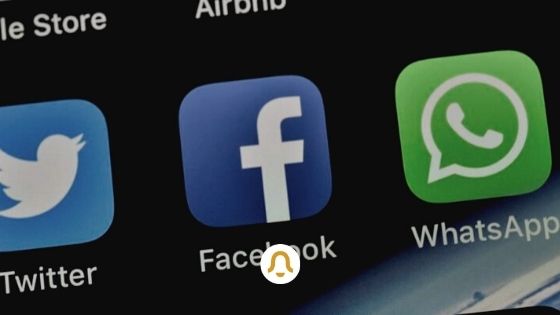With the coronavirus pandemic, cases of fraud on Facebook and other networks have increased. We show you how to take care of yourself on the Internet.
The issue of Facebook fraud is not new. Even before the arrival of social media , there were already people scamming online users through something called fishing.(pretending to be others). Financial scams and identity theft, among other activities that are still used today. On Facebook, fraud has particularly developed with the Marketplace platform which was developed for internet sales. Some people search for products or services through publications, which has made more and more victims of fraud. To help you avoid them, we’ve listed some tips, in addition to the recommendations Facebook makes that apply to any other similar platform.
Don’t transfer money unless you are sure
A lot of cheap scams involve promising a service and asking the buyer to make a wire transfer first to put it aside. Beware of this type of method and always ask for cash on delivery. If it’s a transfer, you can ask for official ID, making sure it’s the name of the account you will be transferring to, but we recommend you avoid it. Love scams should be mentioned here. In these cases, the crooks Usually send messages to victims, romanticising them and making various promises. At some point, they can ask for money either for a supposedly bad work situation or for an emergency trip. It’s best not to be trusted.
Google, Apple and Amazon decide to suspend parler social network
On Facebook Marketplace, check the seller’s reputation
On Facebook Marketplace , if we see a product and click on the seller’s profile, we can see how it has been rated by other platform users. So this is the best way to do business on Facebook . In some groups, you can even ask sellers for referrals to make sure it’s not a scam. Outside of those two poles, it’s a little tricky to make sure a person is valid, and even a flashy profile can be a good trap. Make sure that the seller of the product you are looking for is trustworthy and is not asking for personal information of any kind. Worth Reading: The 15 most demanded jobs of 2021, according to LinkedIn
Beware of people who displace the conversation
One of Facebook’s main recommendations is that we should be wary of anyone “who asks you to move the conversation away from the platforms where the initial contact took place, to a less public or less secure location, such as an email. or an unreliable site ”. In this way, various scams can take place, and that is a red flag. If someone wants to get the deal done, even in person, take your precautions. Some scams involve sending you to scam websites, so also check the links before accessing them.
Check as best you can
According to Facebook, we can check the number of anyone signing up on Messenger with a cell phone number to see if it is from where the “seller” claims to be from. It is only one way of ascertaining a person’s identity or their reliability. Avoid profiles that have almost no friends or look new, or appear to have fake photos. Likewise, if a service seems flippant and makes you uncomfortable, avoid it. It sounds a bit far-fetched (as not everyone has the perfect spelling and writing), but it is recommended that you be wary of posts with such errors, as usually sales sites or sellers do. strive to communicate optimally. In informal trade,
Avoid all suspicion
If someone asks you for personal data, if their profile does not contain too much information, if they ask for a transfer or anything else that makes them suspicious, it is better to leave them out. If they insist on offering you the product even though you’ve already refused, that’s even more suspicious. Also Read: The 5-hour rule to be as successful as Elon Musk, Bill Gates & Co.
Facebook recommends taking the following into account:
- Beware of people you don’t know who ask you for money.
- Beware of people asking you to send them money or gift cards in exchange for loans, prizes, or other earnings.
- Beware of people who ask you for a sum of money to apply for a job.
- Beware of sites that represent large companies, organisations, or public figures and that are not verified.
- Beware of people who ask you to continue a conversation through a channel other than Facebook that is less public or less secure.
- Beware of people claiming to be friends or family in emergency situations.
- Beware of people who give out false information about their location. If a person signs up for Messenger with their cell phone number, you can find out what country that number is from. If you think a page might be scamming you, you can check its location.
- Beware of messages containing spelling or grammatical errors.
- Beware of people or accounts that direct you to a page for a price.


